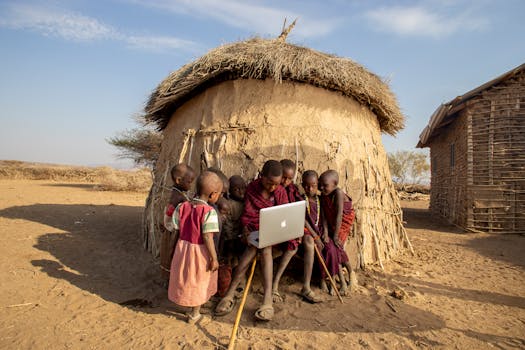
Empowering Communities: The Impact of Fiber Companies on Rural Connectivity in Africa
Empowering Communities: The Impact of Fiber Companies on Rural Connectivity in Africa is a crucial aspect of modern development, as it enables access to information, education, and economic opportunities. In Africa, where many rural communities lack basic infrastructure, fiber companies are playing a vital role in bridging the digital divide. This article will explore the impact of fiber companies on rural connectivity in Africa, highlighting the benefits, challenges, and future prospects.
Introduction to Fiber Companies in Africa
Fiber companies have been expanding their networks across Africa, connecting urban and rural areas with high-speed internet. This has been made possible through significant investments in fiber optic cables, cell towers, and other telecommunications infrastructure. Companies such as MTN, Vodacom, and Liquid Telecom have been at the forefront of this expansion, providing internet services to millions of people across the continent.
The impact of fiber companies on rural connectivity in Africa cannot be overstated. In many rural areas, internet access was previously non-existent or unreliable, making it difficult for people to access basic services, communicate with loved ones, or engage in economic activities. With the arrival of fiber companies, rural communities are now able to access high-speed internet, enabling them to participate in the digital economy, access education and healthcare services, and connect with the rest of the world.
The Benefits of Rural Connectivity
The benefits of rural connectivity in Africa are numerous. For instance, high-speed internet access has enabled rural communities to access online educational resources, such as e-learning platforms, online courses, and digital libraries. This has improved educational outcomes, as students and teachers can now access a wide range of learning materials, communicate with each other, and engage in collaborative learning experiences.
Rural connectivity has also improved healthcare services in Africa. Telemedicine, for example, has enabled rural communities to access medical consultations, diagnoses, and treatments remotely, reducing the need for physical travel to urban areas. This has been particularly beneficial for people with chronic illnesses, disabilities, or limited mobility, who can now access medical care from the comfort of their own homes.
Furthermore, rural connectivity has enabled rural communities to engage in economic activities, such as e-commerce, online marketing, and digital entrepreneurship. With access to high-speed internet, rural businesses can now reach a wider market, access new customers, and compete with urban-based businesses. This has created new economic opportunities, stimulated innovation, and contributed to poverty reduction in rural areas.
Challenges and Future Prospects
Despite the many benefits of rural connectivity, there are still significant challenges to be addressed. One of the major challenges is the high cost of internet access, which remains unaffordable for many rural communities. Fiber companies must continue to invest in infrastructure, reduce costs, and develop affordable pricing models to make internet access more accessible to rural communities.
Another challenge is the lack of digital literacy in rural areas. Many people in rural communities lack the skills and knowledge to effectively use the internet, which can limit the benefits of rural connectivity. Fiber companies, governments, and civil society organizations must work together to develop digital literacy programs, provide training and capacity building, and promote the adoption of digital technologies in rural areas.
Looking to the future, the prospects for rural connectivity in Africa are promising. With the continued expansion of fiber networks, the adoption of new technologies such as 5G, and the development of innovative business models, rural communities will have access to faster, more reliable, and more affordable internet services. This will enable them to participate fully in the digital economy, access new opportunities, and improve their overall quality of life.
Conclusion
In conclusion, the impact of fiber companies on rural connectivity in Africa has been transformative. By providing high-speed internet access, fiber companies have bridged the digital divide, empowered communities, and enabled rural areas to participate in the digital economy. While there are still challenges to be addressed, the benefits of rural connectivity are clear, and the future prospects are promising. As fiber companies continue to invest in infrastructure, reduce costs, and develop affordable pricing models, rural communities will have access to faster, more reliable, and more affordable internet services, enabling them to thrive in the digital age.




